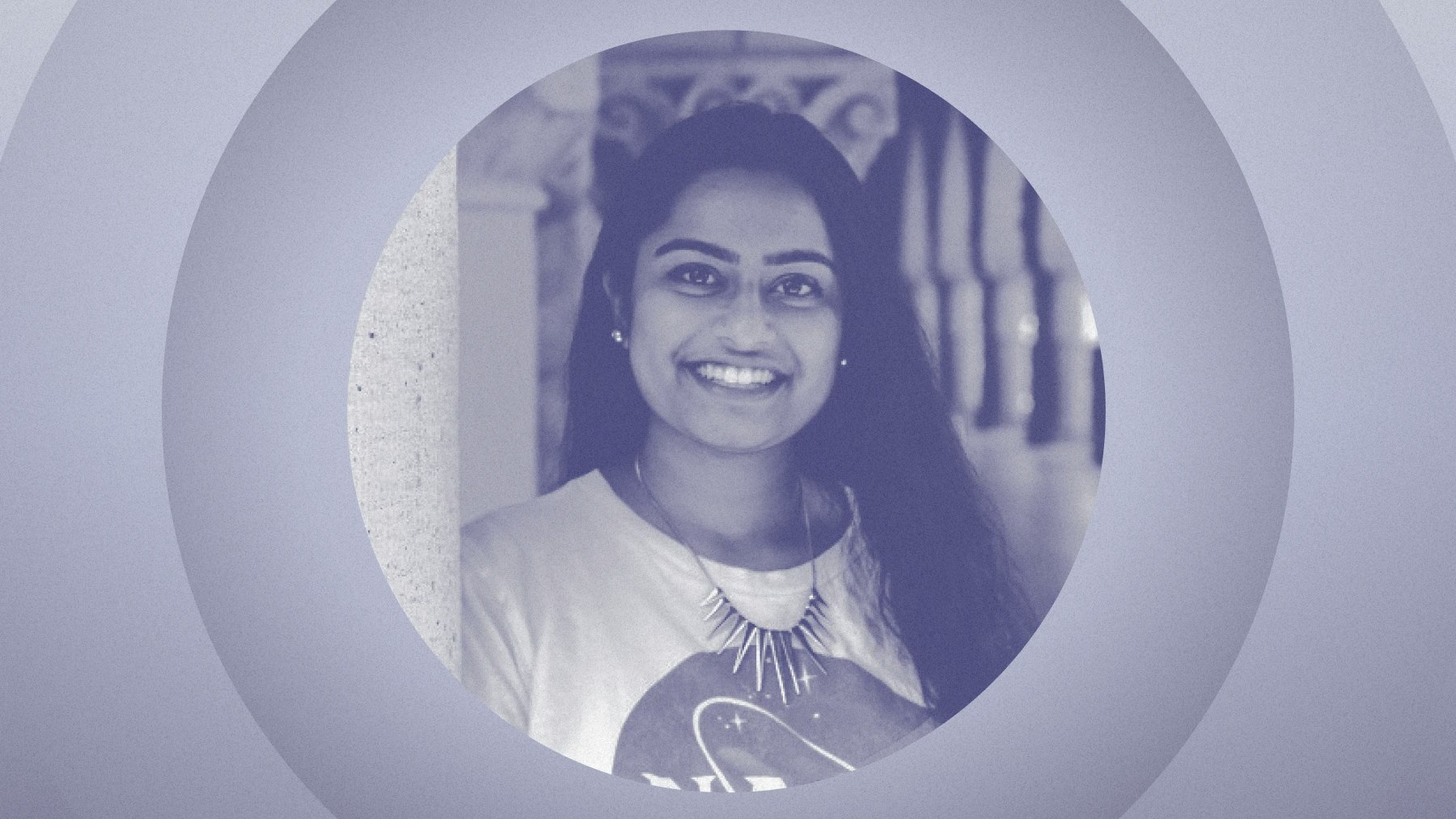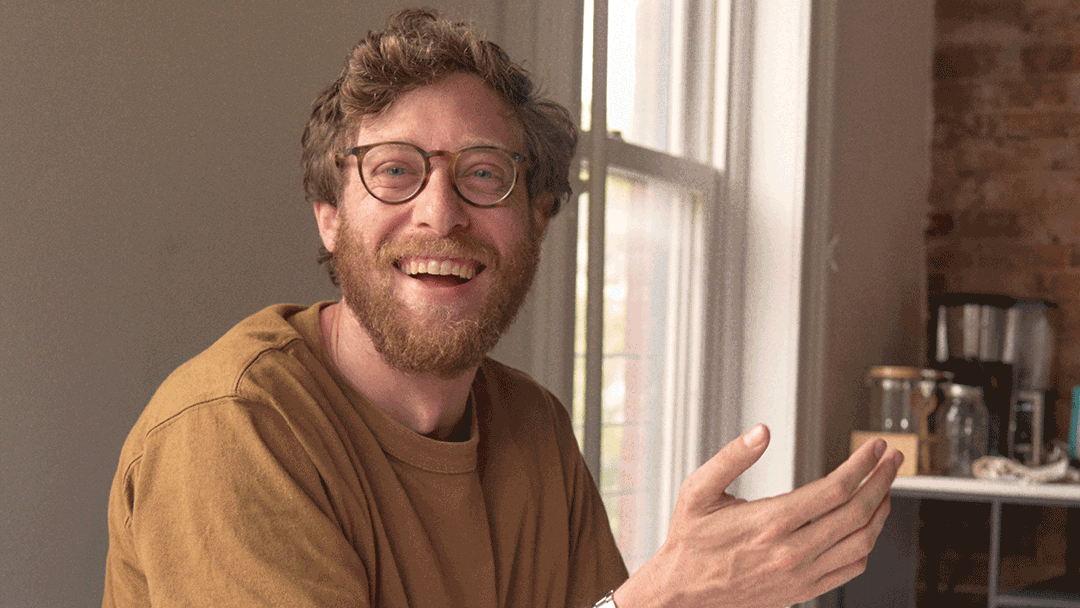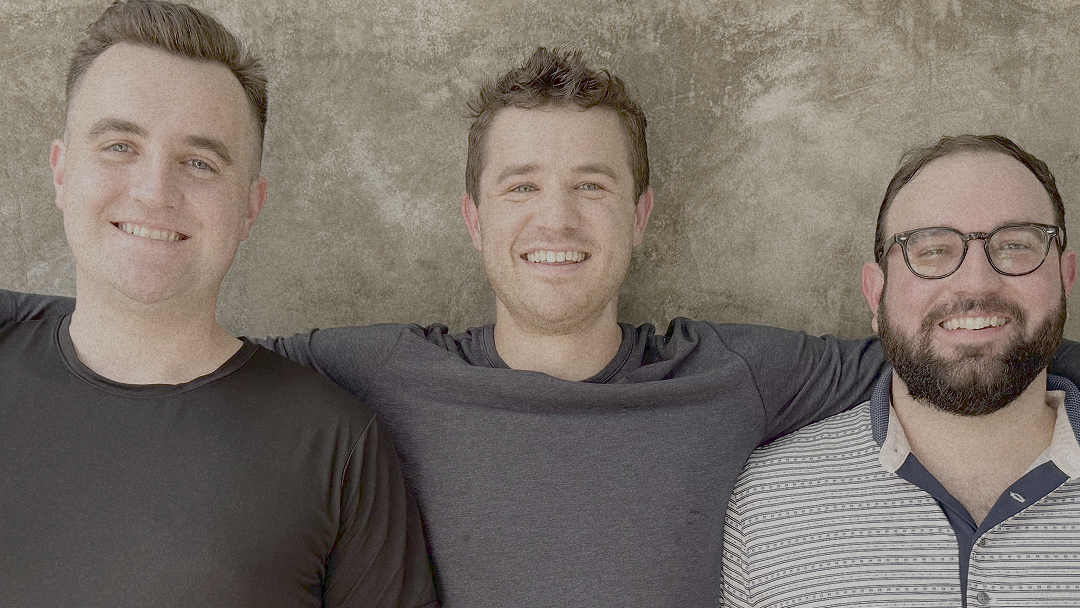Q&A: Akshaya Dinesh, founder of Spellbound

Each month, we put the spotlight on a founder in the Mercury community to learn about their story and the company they’ve built. This month we sat down with Akshaya Dinesh, founder and CEO at Spellbound.
In a world where social media titans are constantly competing for our attention, email marketing has remained a silent victor, generating an estimated $36 in revenue for every $1 spent. But the old-school medium is in need of some new-school tactics.
Imagine receiving an email from your favorite snack brand and finding a matrix of mysterious silver suitcases begging to be opened. You obey, and one of your lucky clicks unlocks an exclusive discount code for your checkout cart — and triggers a small release of dopamine in your brain. Magical moments like this are what Akshaya and her team are hoping to bring to your inbox. Given the subject matter, it was only fitting that we featured her in our email newsletter. Read the full Q&A below.
This interview has been lightly edited for clarity.
In a few sentences, what’s your elevator pitch for Spellbound?
Spellbound is an interactive email platform. What that means is we help brands — specifically ecommerce brands like Feastables and OLIPOP — create embedded interactive experiences within the email marketing they send out to customers. So things like embedded surveys, signup forms, or even the ability to book meetings and shop for products right within an email without having to visit a website.
So what inspired the idea for Spellbound?
The idea for Spellbound came about when I was actually working on my first startup. I started a company when I dropped out of school, and that was a consumer social product, so I worked on that for a couple of years. While I was building that company, a lot of the things that I was doing were actually around email marketing to our customers. I did all of the email infrastructure myself in code, which ended up being a major time suck.
At the same time, it also felt like our emails were getting less and less engaging over time, and people were just clicking on them less. When I would talk to our users, they would say that they just didn't want to click so many links, and we had hundreds of links in our emails, so it was just really overwhelming. People did not want to have to go through the experience of switching in and out of their Gmail and logging in to our app every time they clicked on the link.
So I always felt like there was something missing from how email marketing worked. When I started thinking about my next startup idea, I stumbled upon the realization that now was the right time to build interactivity within email. Email clients had just become sophisticated enough that they could handle advanced capabilities, so I started building that.
What inspired the name Spellbound?
The idea behind the name “Spellbound” came from the first few demos that we did where we had prototypes of interactive emails and showed people how it worked. There's just this feeling of “Whoa, this is almost like magic.” It was so different and so unique, especially to email marketers who had been dreaming of something like this for 10 years and had been waiting for it to come around.
These days, some corners of the internet claim that no one reads anymore and that “email is dead.” Why do you think people say that, and what's the argument for doubling down on email when so many people have turned their attention to newer, shinier channels, like TikTok?
I know a lot of people think that email is dead. But I can say for sure that email is not dead, and it probably won’t be dead for a very long time. I think the major reason why email is still going to be around is because it's the only main protocol that's really easy for people to send and receive messages from. You don't need a special app or account other than an email address. And it's an open protocol, so everybody can send things and receive them no matter what account they're on.
It's not like a TikTok or a Twitter DM where, if you're not on that specific app, you're not going to receive those messages. So I think it's really powerful as a marketing tool. It's the one common language where, for any business that wants to reach out to any of their customers, all they need is their customer's email address to start building a relationship with them. Some new channels are popping up, like SMS and push notifications and things like that. But from a marketing perspective, everyone that we talk to still says emails are the number one channel that drives the most revenue and engagement, so it definitely will not be going away anytime soon — even as people start exploring new channels.
What's one of the coolest requests you've ever fielded from a client for Spellbound?
Ooh, there's a ton of really cool requests. Some of the cooler emails that we've built out have been for one of our brands, Feastables, which is Mr. Beast’s snack brand. They have a very creative brand and team. Some of the things that we've done with them are things where there's like a little chocolate bar in the email and you click a button and it takes little bites off the chocolate bar until you can virtually finish eating the chocolate bar. So that was really cute.
We've also done some other cool ones where there's a jar of gummies in the email and you have to guess how many gummies are in the jar. You enter your little guess at the bottom, and then if you have the closest guess, you end up winning free gummies. We're also working on one right now for a soap brand, and you basically click in the email to soap off the character until he's clean. And then once he's clean, you get a discount to buy soap.
You’ve probably also written your fair share of emails. What is the most important email you’ve ever written?
I don't know if it's the most important email, but one pretty important email that I wrote was back when I was thinking about starting my first company. There was basically a VC firm that I had done some things with on campus in college. I reached out to them asking for their advice, which ended up being one of the most important things I did because it helped us turn my project into a company. They ended up investing and really helped kickstart the journey and they also gave us so much useful advice. If you're thinking of building something and hesitating to send that one email asking someone for advice or feedback, definitely go for it.
Can you tell us the secret to writing the perfect cold email — whether it’s for a sales/investor pitch or a connection?
So the secret to writing a cold email is that there's no one secret. Obviously, it needs to be really personalized. That's one thing I've learned is that the one template batch and blast almost never works. You have to add something so that the person feels like you're talking to them directly and they're not just part of a drip campaign.
When it comes to investors, there are some emails where you end up asking for advice and you'll get advice. You end up asking for money and sometimes you still get advice. So there's almost a dance to be had in terms of how you set up the context for the conversation. In a lot of cases, especially with sales, I've actually found that asking for advice and feedback and being very vulnerable tends to do really well in converting to a sale. But sometimes it can also go in the opposite direction with investors where you ask for advice and that actually makes them less likely to invest in you. So it really just depends on the type of email that you're writing.
The startup you co-founded before Spellbound, Nova. What was the key learning you took from that experience when you built Spellbound as a solo founder?
So I started a company before Spellbound called Ladder, now called Nova, and that was a consumer social platform oriented around helping Gen Z build their careers. We were trying to be the new LinkedIn for Gen Z.
There were also tons of key learnings, like how building consumer user experiences is often very counterintuitive and involves a lot of luck. A lot of times, I would do user interviews with people and they would tell me, “Oh, I really wish I had this feature,” or “This one thing is missing from the product that I really want.” And then I would go and spend weeks building and iterating and designing and actually implementing that feature. And then those same people would end up never using the feature that they asked for.
Consumer psychology is very hard to predict. It's really hard to build when they're not paying for a product, so they really have no incentive to use it, versus when you’re selling to businesses, product building is just so much more straightforward. If a customer said they wanted something and they were paying for it, they were going to use it. That was a lot more satisfying to me.
In the process of building that first company, you dropped out of Stanford at 19. Can you tell us more about that?
So I dropped out of college when I was 19 in my sophomore year at Stanford. At the time it was actually not much of a precedent at all, and it was kind of an accident. I ended up initially taking time off from school to do some internships. I was doing an internship at a flying car startup, and that was when I ended up starting Ladder as a side project. It really just went viral and ended up turning into a company by accident. So dropping out was not a very intentional decision. It was more like, “Okay, this thing that we built is taking off and it's the perfect opportunity to start a company, we better go all in on it.”
Which has been the most challenging as a founder (or while raising money): being a woman of color, a young person, or a dropout? Can you speak more about that?
The most challenging part of raising money was just being new to the whole process. I'd say being a dropout actually maybe even helps with raising money, especially when you're a Stanford dropout because it kind of plays into that stereotype. I think there are some challenges to being a woman when raising money, more so just because I felt like I was missing that camaraderie piece that a lot of male tech founders had where they could just jam out with VCs, bond over sports, or grab a beer. The pandemic leveled the playing field a ton by making things very much cut to the chase, down to business. You get on a Zoom call, and within 30 minutes, you either have a check or you don't.
That made it so much easier for me because I could actually focus on the things that I was able to control, like getting my pitch to be really good and focusing on the business milestones and metrics that mattered, versus trying to hustle my way into networking with people that maybe I wouldn't be as comfortable networking with or I wouldn't get to know on a personal level.
Turning back the clock a little bit, we read that after learning how to code in eighth grade, you became a devoted attendee of hackathons. How many have you been to, and do you still do them?
So I originally hated coding because I was like, what are these random “if” statements for? It wasn't until I started going to hackathons that I realized just how powerful coding could be as a skill to make really cool products. Hackathons gave me this really special environment — I kind of thought of them as fun sleepovers almost.
At first, they were really scary because I had no friends there, and it was really awkward being the only girl in the room of a hundred guys I didn’t know. But over time, I started developing a lot of those skills and I actually think that's what helps me today with a lot of the things that I have to do as a founder. Pitching and learning how to explain the things that I'm working on was such a valuable skill. My strategy for winning hackathons was just having a really great pitch and a really great demo.
I've been to about 45 hackathons, and all of them were in high school. I stopped going to them in college because things got too busy with classes and stuff like that, and I absolutely do not have the time to go now while running a company!
Speaking of demos, when people book a demo through Spellbound, you’re the one who will personally walk them through the product. Why do you think it’s important for you to walk people through the demo?
So when you book a demo through Spellbound, I am still the person that is doing every single demo. It's mostly because we're still a really small team, and we likely will hire a full-time salesperson soon.
One of the superpowers of actually being a solo founder is the fact that the same person is in charge of product strategy, sales, and customer development. I think the disconnect is what oftentimes leads people to not find product-market fit and to just end up building a product that no one really wants — the things that their customers are asking for are not going straight into the ears of the person actually building the product.
At one point in the day, I could be on a sales call with a customer who's like, “Hey, I really want this feature, please tell me you guys have this.” And then 30 minutes later, I'm in a product call where I can literally add that to our roadmap and have our engineers start on it immediately. I want to be involved in both of those aspects for as long as I possibly can, even if it's from more of a management perspective.
Who was the first entrepreneur you ever looked up to?
Andrew Sutherland, the founder of Quizlet. When I was 16, I read about how he started Quizlet when he was 16 in his sophomore-year French class. And here I am sitting in my sophomore-year French class being like holy crap, if he can do it, I can do it too. He has built such an incredible product that so many students use every day — that I used every day in high school. At one point, he ended up doing a talk at my last company, and it was so cool to basically meet one of my childhood heroes.
At 23, you’ve asked and been asked so many questions already. What’s one question you’ve never been asked but always wished someone would ask you? And what’s your answer to that question?
The one question that I sometimes get asked, but not nearly enough is just: What drives you or what motivates you? For me, that's definitely my mom. She's been so supportive and has helped me through literally everything that I've done. As an immigrant that moved to the U.S. with no money, very little education, and few resources, but who was able to build a life and a career out of that, she’s my role model. Having all the privileges that I have, it's really inspirational.
Favorite Mercury feature?
When’s the best time to send an email?
The best time to send an email is Sunday night because that's when I have the most time to send emails!
Inbox zero, inbox infinity, or a secret third thing?
I don't believe in inbox zero, but I also don't believe in inbox Infinity. My inbox is kind of a mess, but what works for me is just leaving all my emails as read once I'm done responding to them and leaving them as unread if I don't respond to them. This means I do have a bunch of unread emails that are old and I need to follow up on, but if I don't do that then I will definitely forget about them. So that works for me.
Open rate or click-through rate?
Neither. We like to measure email engagement at Spellbound. Are people actually taking action from your email? Are they actually doing the thing you want them to do? Are they clicking within the email? Are they actually engaged or are they just checked out and kind of moving on to the next thing? Open rates suck. Apple Mail privacy protection kind of ruined that for us. And click rates also kind of suck because someone might click but still not do anything on your website.
Worst email faux pas?
Oh, the worst email faux pas is probably leaving the variables in your email on by accident and not properly setting them up. So instead of someone getting a “Hello Alice” email, they get a “Hello first name” email. Not a good look.
Weirdest email you’ve ever gotten?
The weirdest email I've ever gotten is probably this line of cold emails that people have been sending me where they write my name on a whiteboard and then take a picture of it and attach it to the cold email. I'm sure it's AI-generated, but it's so strange. I don't want my name on your whiteboard. Take it off.
Favorite newsletter you can’t get enough of?
My favorite newsletter right now is an ecommerce newsletter that I'm subscribed to called Express Checkout. It's essentially a list of all the recent news and happenings in the DTC world, which is really helpful for me because it's not really my background. It gives me an overview of all the big acquisitions and updates that are happening in the industry.
Mail app or Gmail app?
Gmail app.
Email or Slack?
Definitely Slack. I am way slower to respond over email than I am on Slack. I love Slack. I wish everyone would just Slack me.
Interested in being featured as a founder spotlight in an upcoming issue of The Messenger newsletter and our blog? Sign up for a Mercury account, then submit your company for consideration here.
Related reads



